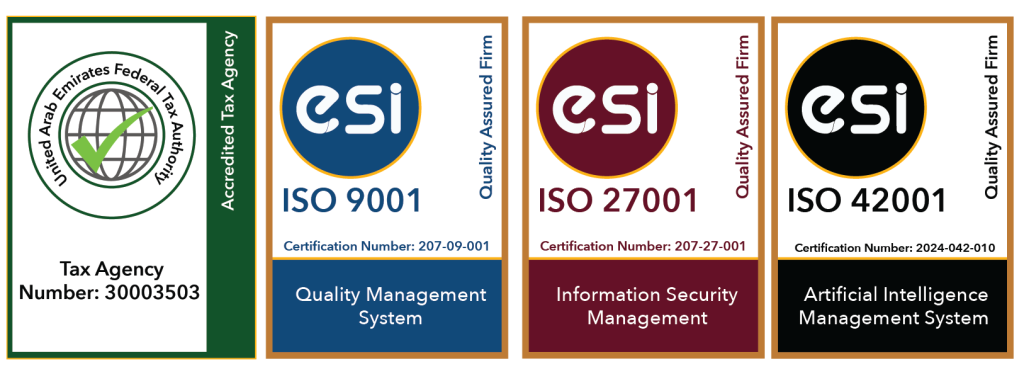Payroll is often seen as a routine task, but inaccuracies in employee data and compliance issues create significant challenges. For companies operating under increasingly complex UAE regulations, ensuring payroll accuracy and strong employee management is essential to control costs, reduce risks, and maintain employee satisfaction.
This article explains how effective Employee Management supports payroll efficiency and outlines practical strategies and solutions that help organisations build compliant and scalable human resource management models.
What Is Operational Excellence in Payroll?
Operational excellence in payroll means managing payroll processes with accuracy, efficiency, and full regulatory compliance. It includes correct wage calculations, timely payments, appropriate deductions, and transparent recordkeeping.
When Employee Management and Payroll Management operate efficiently, organisations reduce errors, minimise compliance risks, improve employee trust, and ease administrative workload. Integrating payroll with employee management models such as time tracking, benefits administration, and performance management, businesses benefit from a unified approach to workforce management.
An efficient payroll function processes payments on time, calculates statutory contributions accurately, and provides employees with clear, detailed payslips. This contributes directly to both operational efficiency and employee satisfaction.
Why Employee Management Is Central to Payroll Efficiency
Employee Management forms the foundation to run an accurate and compliant payroll function. Without reliable employee data and salary structures, payroll processes are more likely to produce errors, delays, and compliance risks. Effective employee management supports the following areas:
Payroll Accuracy
Incorrect or incomplete records for working hours, leave impacts, or benefits often result in payment errors. Consistent and up-to-date data ensures each payroll run is accurate.
Processing Speed
Automating tasks such as approvals, data updates, and payments reduces manual input and shortens processing time.
Regulatory Compliance
Payroll models that stay aligned with changes in labour laws and tax codes help ensure ongoing compliance with statutory requirements under the tax and labor laws.
Employee Retention
Clear payslips, transparent deductions, and accurate payments build trust. This clarity contributes to employee satisfaction and supports long-term retention.
Effective employee management supports compliance efforts, but organisations still face significant challenges when managing payroll across multiple jurisdictions.
Payroll Compliance Challenges
Managing payroll compliance across jurisdictions demands consistent monitoring and current knowledge of regional legislation. Labour laws, tax codes, and statutory requirements vary between markets and evolve frequently.
Common Compliance Challenges include:
- Adapting to updates in tax and employment regulations
- Managing multiple contract types (full-time, part-time, freelance)
- Calculating statutory contributions, including pensions and insurance
- Meeting jurisdiction-specific filing and reporting deadlines
Solutions Offered by Integrated Payroll Models
Integrated payroll provides key benefits that directly address compliance challenges:
| Feature | Benefit |
| Automated Updates | Keeps the system aligned with evolving tax and labour regulations |
| Early Error Detection | Identifies potential compliance issues before they escalate |
| Transparent Reporting | Optimizes audit preparation and regulatory submissions |
| Calculation Automation | Reduces manual errors by automating complex payroll calculations |
By implementing integrated payroll solutions, organisations reduce compliance risks and improve the reliability and accuracy of their payroll operations.
The Importance of Payroll Transparency
Transparent payroll processes reduce ambiguity and strengthen operational control. When employees understand how their pay and deductions are calculated, disputes decline and confidence in management increases.
Organisations that apply structured transparency report measurable outcomes. A Korn Ferry study found that pay disparities decreased significantly in companies with clear pay structures, contributing to improved employee trust in payroll accuracy.
Key benefits include:
- Improves Clarity – Reduces queries related to unclear deductions
- Strengthens Trust – Employees understand how compensation is determined
- Enhances Financial Awareness – Supports informed personal financial planning
- Reinforces Engagement – Contributes to a fair and accountable work environment
However, transparency must be supported by consistent communication and systematic processes to prevent misinterpretation or disruption.
Integrating Payroll and HR Management
Following greater transparency, integration between payroll and HR processes plays a critical role in improving accuracy, monitoring, and responsiveness.
Modern payroll platforms now support core HR functions, optimising employee administration through features such as:
- Real-time tracking of attendance and working hours
- Automated leave approvals and balance adjustments
- Consolidated salary, benefits, and allowance data
- Self-service portals for payslip access and profile updates
Integration Capabilities
Cloud-based payroll systems are designed to interface with:
- Human Resource Information Systems (HRIS)
- Time and attendance management tools
- Benefits and insurance administration platforms
These systems maintain payroll data centrally, ensuring consistent processes across departments. For organisations with remote or hybrid teams, cloud-based platforms provide reliable access to current information regardless of location.
Best Practices for Payroll and Employee Data Integration
Effective integration of payroll and HR functions requires disciplined processes and the right system capabilities. The following practices enhance precision, compliance, and operational efficiency:
| Best Practice | Description | Benefit |
| Adopt Connected Platforms | Implement payroll systems that connect to HR modules | Minimises discrepancies and avoids duplicate entries |
| Maintain Current Records | Regularly update roles, benefits, and salary data | Ensures accurate calculations and legal compliance |
| Automate Regulatory Updates | Use systems that reflect legislative changes, compliant to local compliance and salary structures | Lowers compliance risk and administrative overhead |
| Enable Staff Access | Provide employee portals for payslips and updates | Reduces manual queries and improves user engagement |
| Track Key Metrics | Use data to assess cost trends and accuracy | Informs continuous process improvements |
Implementation Steps
- Evaluate Current Processes
Identify gaps in accuracy, reporting, and compliance
- Adopt Modern Platforms
Choose cloud-based payroll systems with integrated employee management
- Train Staff
Equip HR and finance teams with the skills to manage new systems
- Promote Transparency
Use self-service features and clear communication to build trust
- Monitor KPIs
Use metrics like payroll accuracy, processing time, and compliance status to drive improvements
Conclusion
Employee Management in payroll extends beyond processing salary payments. It requires alignment with UAE regulations, automated workflows, and clear communication. By adopting integrated payroll systems and applying best practices with the latest technology, organisations can simplify payroll management, reduce errors and comply with UAE regulations. These improvements lower operational costs, improve workforce satisfaction, and support sustainable business performance.
About SimplySolved
As an ISO 9001, 27001, and 42001 certified firm, SimplySolved provides expert payroll and employee management services in the UAE. Our team operates as an outsource HRM and Payroll business partner to ensure compliance with WPS and other regulations, offering seamless payroll solutions to support business growth.
With deep experience across regulatory environments and expertise in advanced payroll platforms, SimplySolved supports businesses in building cost-effective compliant, efficient, and scalable HRM and Payroll models.
Partner with SimplySolved to build a compliant and reliable foundation for your UAE business. We serve 100’s of clients to implement effective HR processes, platforms and Employee Management & Payroll Management as a trusted business partner. Our approach seeks to implement best-in-class platforms, manage employee processes, compliance and payroll. We ensure business unfamiliar or focused on core operations to receive cost-effective, quality driven guidance and support from an experienced partner.






